Wondering if your relationship might be narcissistic? Look out for signs like:
- A constant need for praise
- A lack of understanding for others’ feelings
- Using others for personal gain
- Trying to make you doubt your reality
- Always criticizing
- Feeling superior
- Extreme jealousy
These behaviors can harm your emotional health and affect how you handle relationships in the future.
Let’s take a closer look at these warning signs of a narcissistic relationship and their impact on your life.
Key Takeaways
- Narcissistic relationships often involve an insatiable need for validation and admiration from the partner.
- A significant lack of empathy is a hallmark, leading to emotional disconnect and isolation.
- Manipulative behaviors, such as love bombing and gaslighting, are tactics used to control and confuse.
- Excessive criticism and a sense of entitlement can deteriorate self-worth and create an unhealthy power imbalance.
Constant Need for Admiration
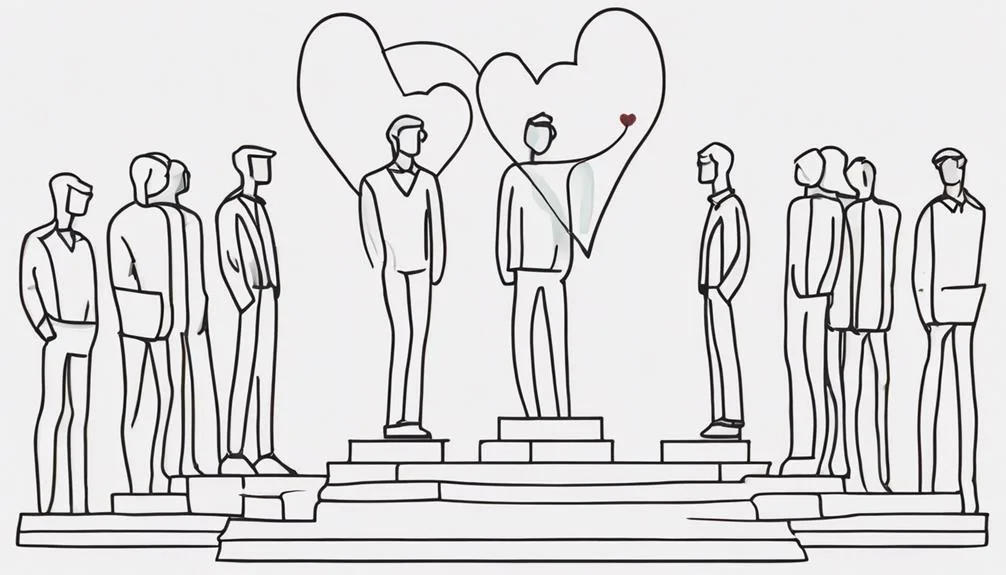
At the heart of a narcissistic relationship lies a partner’s insatiable craving for admiration and validation. This admiration addiction isn’t just a fleeting desire; it’s a relentless pursuit that dictates their actions and reactions.
You’ll notice how they’re constantly seeking validation, turning every conversation back to themselves, and fishing for compliments to feed their ego. It’s as if their self-worth hinges entirely on how much praise they receive from you and others.
This validation seeking behavior isn’t just about feeling good; it’s an essential component of their emotional machinery. They thrive on it, and without it, they feel unseen and insignificant. Recognizing this pattern is important in understanding the dynamics at play in your relationship.
Lack of Empathy

Amid these interactions, you’ll quickly notice that a narcissistic partner’s ability to empathize is remarkably deficient. Emotional unavailability and cold indifference become the norm rather than the exception. You might find yourself pouring your heart out, only to be met with a lack of understanding or, worse, blatant disregard. This emotional disconnect can leave you feeling isolated and unvalued in the relationship.
- Your tears seem invisible to them, as if your pain is just a shadow that doesn’t catch their eye.
- Their responses to your struggles are often robotic, lacking any genuine warmth or concern.
- You’re left comforting yourself because their arms, though physically there, offer no solace or understanding.
Manipulative Behaviors
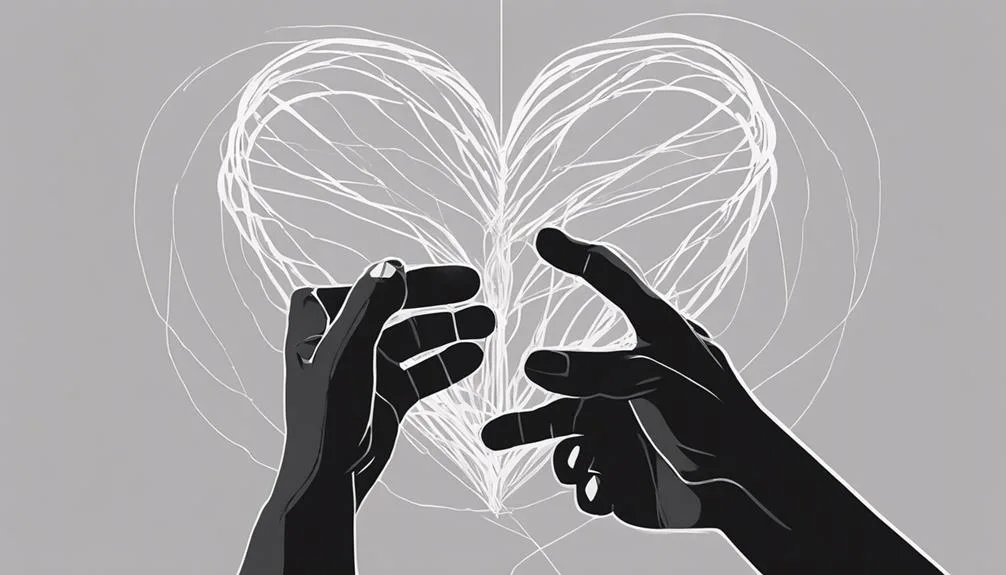
Narcissistic partners often employ manipulative behaviors to control and dominate the relationship. They use tactics like love bombing and the silent treatment to keep you off balance. Love bombing involves overwhelming you with affection and attention to make you dependent on them, while the silent treatment is used to punish and manipulate you into compliance.
Recognizing these behaviors is important for understanding the dynamics of a narcissistic relationship.
| Behavior | Purpose | Effect on Partner |
|---|---|---|
| Love Bombing | To create dependency | Feels overwhelming yet gratifying |
| Silent Treatment | To punish/disempower | Sparks confusion and desperation |
| Excessive Flattery | To lower defenses | Creates a false sense of security |
| Isolation | To reduce outside influence | Increases dependency on the narcissist |
Gaslighting Techniques
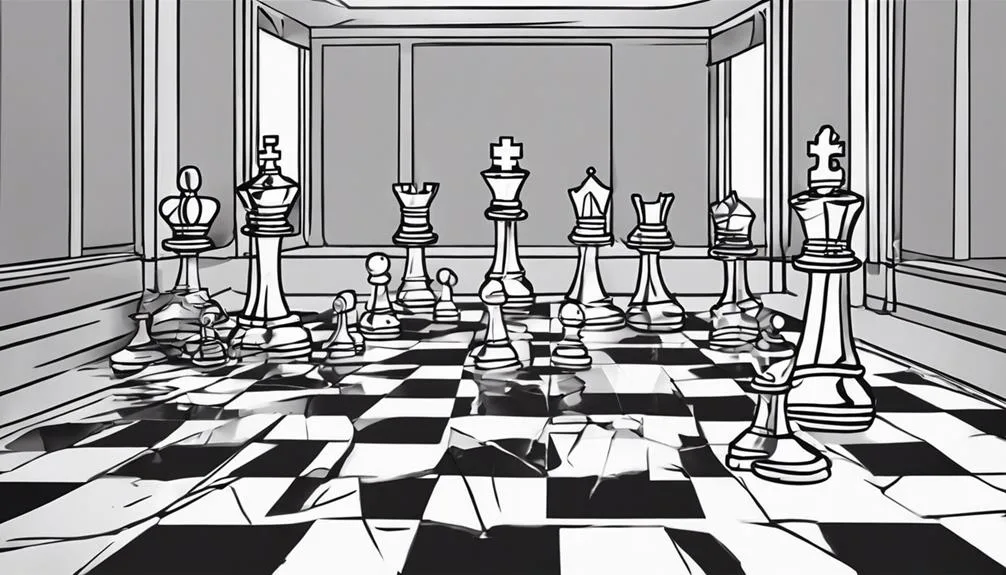
Understanding manipulative behaviors is just the starting point; another key tactic employed by narcissistic partners is gaslighting, a strategy designed to make you doubt your own reality. This method involves memory distortion and reality questioning to undermine your confidence and self-trust.
- You’re constantly second-guessing yourself, wondering if your recollection of events is accurate.
- Feelings of isolation creep in as you’re led to believe that only your partner understands the ‘truth’.
- A pervasive sense of confusion becomes your norm, making you reliant on the very person manipulating you.
These techniques aren’t just hurtful; they’re designed to disorient and control. Recognizing them is a vital step in reclaiming your sense of self and reality.
Excessive Criticism
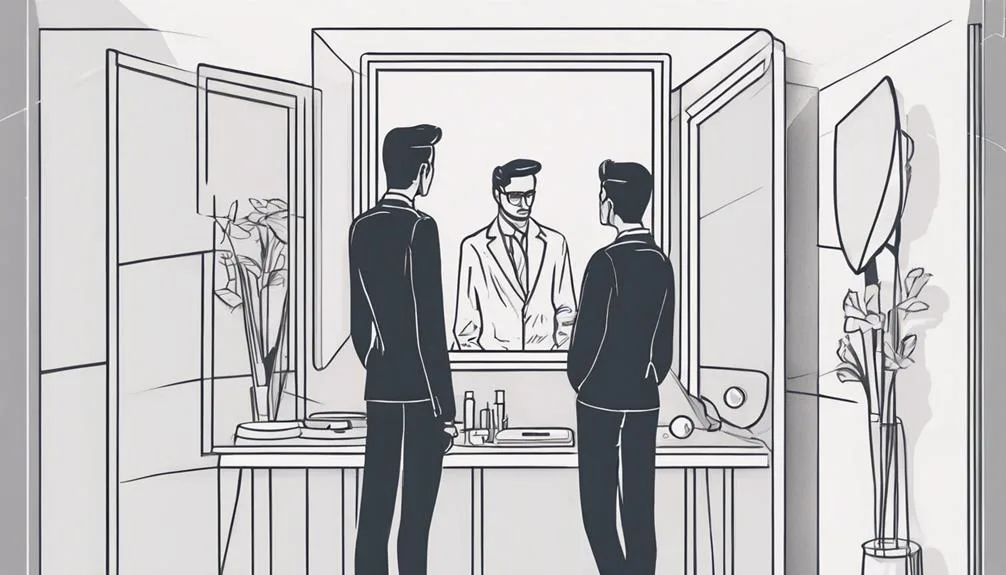
Frequently, you’ll find yourself on the receiving end of unwarranted and excessive criticism in a narcissistic relationship. This constant barrage can severely impact your self-worth, making you question your own abilities and value.
| Aspect | Impact | Outcome |
|---|---|---|
| Emotional | Self worth impact | Lowered self-esteem |
| Psychological | Constant criticism | Doubt and insecurity |
| Communication | Breakdown | Isolation |
| Personal Growth | Stagnation | Loss of ambition |
| Social | Withdrawal | Loneliness |
This table illustrates how excessive criticism not only affects your personal feelings of worth but also leads to a breakdown in communication, hindering your ability to express yourself freely and connect with others. As you navigate through these challenges, it’s essential to recognize these patterns and seek support.
Sense of Entitlement

Another hallmark of narcissistic relationships, beyond the constant criticism, is a pronounced sense of entitlement. This sense of entitlement often manifests in various demanding behaviors. Your partner may have unrealistic expectations of you, believing you’re there to serve their every need, without considering your desires or limitations.
- Financial demands may escalate, with your partner expecting you to fund their extravagant lifestyle or bail them out of their financial irresponsibility.
- Unrealistic expectations about your availability, insisting you drop everything to cater to their needs.
- A demand for constant attention and admiration, making you feel drained and undervalued.
These signs not only evoke frustration but also a deep sense of inequity in the relationship, leaving you feeling more like a resource than a partner.
Jealousy and Control
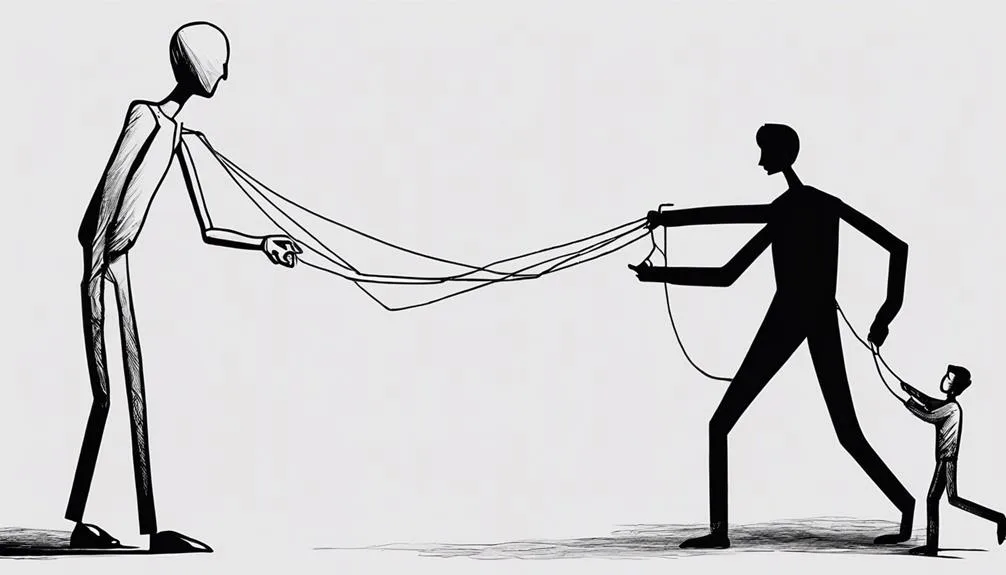
Jealousy and control often weave tightly into the fabric of narcissistic relationships, manifesting as possessive behaviors that limit your freedom and self-expression. Your partner may insist on knowing where you’re at all times, questioning your motives when you spend time with friends or even family. This behavior aims at social isolation, cutting you off from your support network and making you more dependent on them.
Additionally, financial dominance becomes a tool in their arsenal; they might control your access to money, scrutinizing your spending and demanding justification for every purchase. These tactics aren’t about protection or care; they’re about power. Recognizing these signs is essential as they don’t reflect a healthy, supportive relationship but one marred by manipulation and control.
Conclusion
Enduring a relationship with a narcissist often feels like navigating a maze with no exit. It is marked by a relentless quest for admiration, a profound absence of empathy, and manipulative behaviors. These experiences, from gaslighting to unwarranted criticism and controlling tendencies, not only challenge one’s self-worth but also illuminate the importance of recognizing such patterns.
Acknowledging these signs paves the way for empowerment, encouraging steps towards healthier relationships that truly resonate with one’s values. Does this journey not underscore the vital need for self-awareness and the courage to demand the respect we all deserve?

